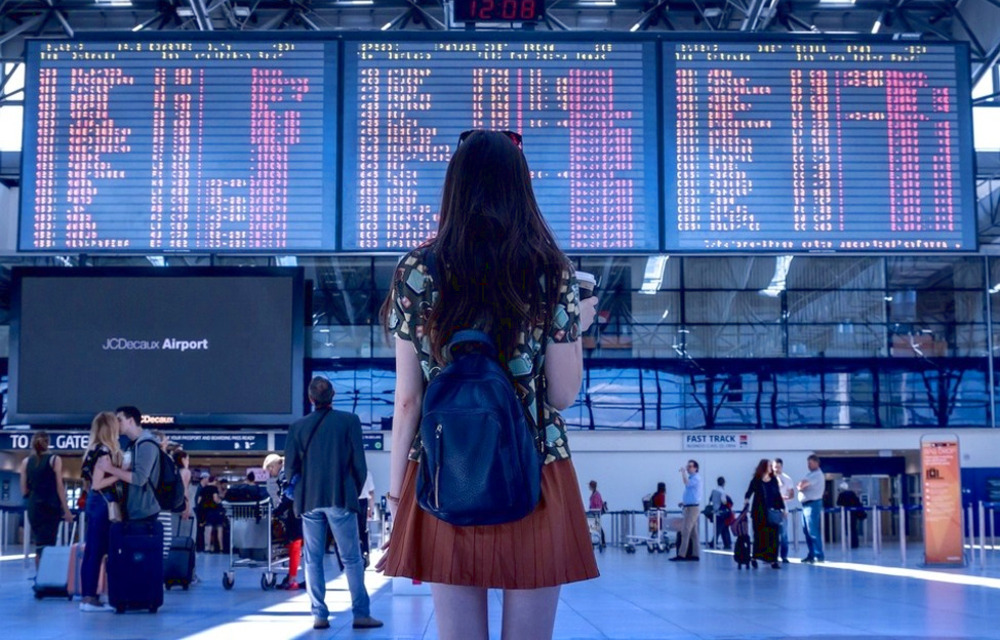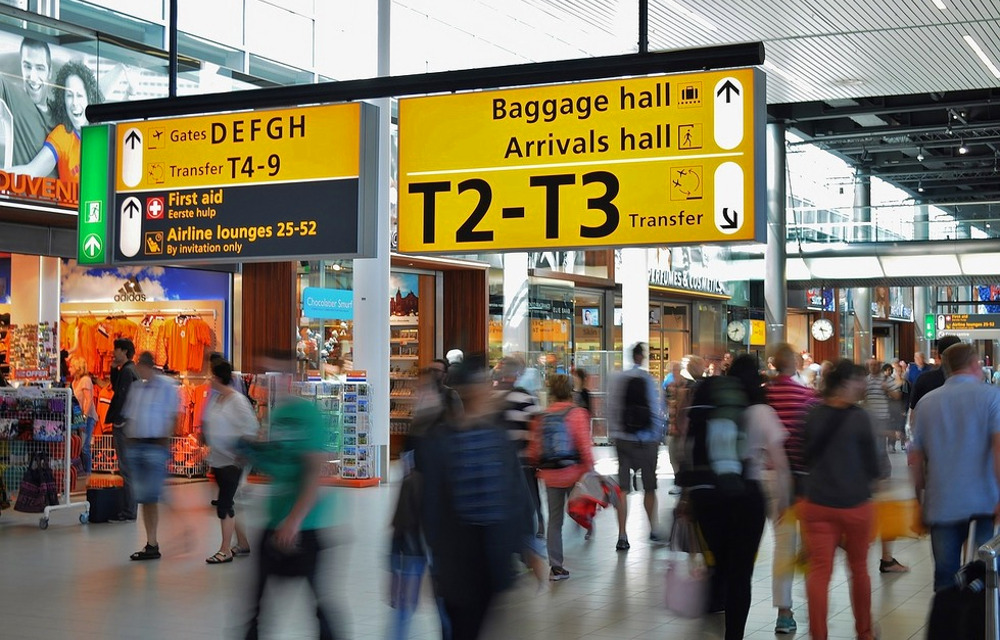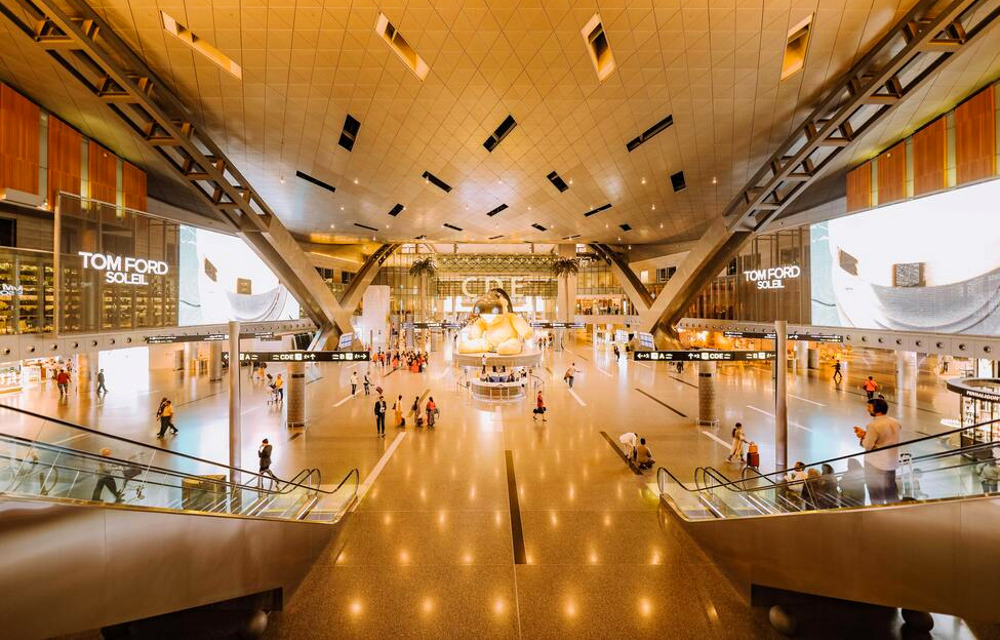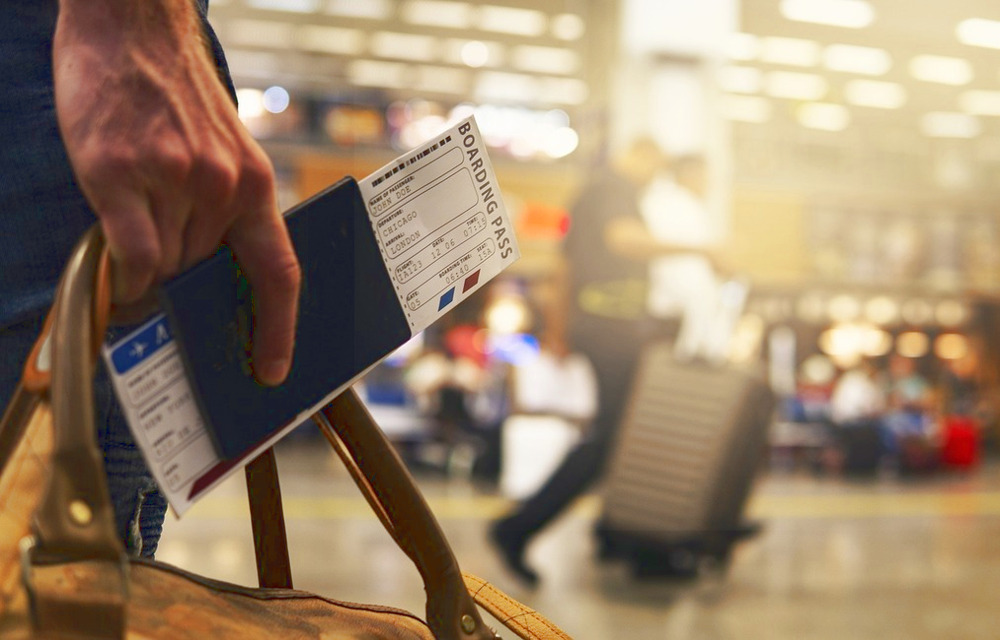One thing we all love about holidays is the freedom to splurge a little. But just how much are we really spending when we escape our everyday routines?
In our new study, we dive into the spending habits of UK travellers, revealing some fascinating insights into holiday budgets and the unusual 'holiday maths' many of us use to justify those extra expenses.
But first – what’s ‘holiday maths’? The term, inspired by the TikTok trend 'girl math', involves rationalising extravagant or unnecessary expenses while on vacation. For instance, over half of Gen Z (53.5%) feel that purchasing tickets for tourist attractions in advance makes the visit feel ‘free’, and 51.16% believe airport spending doesn’t count towards their holiday budget.
How UK travellers are using ‘Holiday Maths’
Here, we’ll be revealing:
UK cities most likely to go over their travel budget

It turns out nearly 40% of those we asked admit to going over their holiday budget, overspending by an average of £370. Those in Brighton and Edinburgh are especially prone to this, with over half (51% and 50%, respectively) admitting they exceed their planned travel spending.
But when it comes to looking at price tags, it's those in Greater London who take the crown for the biggest budget busters, often overspending by a whopping £485.41. Additionally, 15% admit they blow their budget by £901 to £1,000—double the national average!
Luckily, a great holiday doesn’t have to be a financial strain. According to our research, the Welsh city of Newport is the best in the world to visit if you're keen to explore multiple top attractions on a budget, with an average cost of 75p across its 15 top-rated attractions.
Plus, if you’re driving to a UK destination, you’ll avoid any airport spending, which is another area where holiday budgets get stretched.
While a small minority (1.2%) claim they don’t buy anything at the airport, the average person spends £60.53 while waiting for their flight. Airports in Birmingham see particularly high spending, with an average of £79.65. Meanwhile, Welsh travellers are more likely to buy gifts and souvenirs at the airport than the national average, with 29% claiming they normally buy these items at the airport when going on holiday abroad, as opposed to the 17% average.
Age also plays a part in those last-minute airport purchases. Younger travellers (aged 16-24) are the biggest spenders at the airport, dishing out an average of £94.44, while the older generation, aged 55 and over, spends less than half of that, just £42.34.
What could be behind Gen Z’s ‘big spender’ attitude at the airport, especially when they tend to be overall mindful of their travel budget? For starters, over half (51%) of this generation feels that whatever they spend at the airport doesn't count as part of their holiday expenses, and thus are more likely to splurge while waiting for their flight. Additionally, when asked what they usually purchase at the airport, impulse buys like food and drinks came out as the number one expense, followed by beauty and fragrance, suggesting that the younger generation is keen to grab duty-free items that appear to deliver big savings, as opposed to buying them on the high-street.

At the airport

The airport shop

Don't forget your passport
Rank |
City |
% of people who typically go over their holiday budget |
1 |
Brighton |
51% |
2 |
Edinburgh |
50% |
3 |
Leeds |
42% |
4 |
Glasgow |
41% |
5 |
Bristol |
41% |
6 |
Southampton |
41% |
7 |
London |
41% |
8 |
Liverpool |
41% |
9 |
Manchester |
39% |
10 |
Nottingham |
38% |
11 |
Birmingham |
37% |
12 |
Cardiff |
36% |
13 |
Sheffield |
33% |
14 |
Newcastle |
29% |
15 |
Plymouth |
21% |
The cities who overspend on holiday meals the most
Dining out is a major part of the holiday experience, with 60.25% of respondents admitting they spend more on meals than they budgeted for. While only 6% of those we asked dine out daily in the UK, 36% eat out at restaurants while on holiday.
And it’s not just going out to eat more often - when travelling, the cost per meal also increases. The average spend on an evening meal at home is £21.47, which increases to £23.58 on holiday. Breakfast and lunch habits also change dramatically, with far more people choosing to eat out while on vacation compared to their routines at home.
But who pushes their budget the most when it comes to grub? Whether it’s meals at a restaurant, a late-night cocktail or an ice cream by the sea, Cardiff tends to spend 31% more on food while on holiday than they would at home, followed by Bristol and Edinburgh.
If you’re part of the 64% who tend to buy food items you wouldn't usually purchase when on holiday abroad, mealtimes overseas can be exciting. For the foodies among us, a great way to curb overspending without sacrificing edible delights is to visit free attractions rather than paid ones. Our survey shows that 31% of UK travellers plan on heading to Spain this year, so we suggest heading to Parque del Retiro, Gran Via, and Plaza Mayor if you’re in Madrid, all of which allow you to take in the rich culture of the city, without spending a penny.

Spending money on meals

Airport cocktails

Souvenirs
Rank |
City |
Average percentage increase in food* spending when on holiday vs at home |
1 |
Cardiff |
31% |
2 |
Bristol |
23% |
3 |
Edinburgh |
23% |
4 |
Birmingham |
17% |
5 |
Leeds |
15% |
6 |
Manchester |
15% |
7 |
Sheffield |
14% |
8 |
Southampton |
13% |
9 |
Liverpool |
11% |
10 |
London |
11% |
*Based on typical spend on a breakfast, lunch and dinner at a restaurant, a cocktail, an ice cream, a sandwich.
The ‘holiday maths’ demographic
Age plays a significant role in how we handle our holiday finances. While ‘girl math’ originated from the most popular social media platform among Gen Z-ers, the older generations are still likely to use ‘holiday maths’: 35–44-year-olds go over their holiday budget by a staggering £415.08, while 45–54-year-olds go over by £384.54. On the flip side, Gen Z (aged 16-24) are surprisingly frugal, with 42% sticking to their budget and 14% spending even less than they planned.
It would also appear ‘holiday maths’ extends beyond people’s general travel budget, with different generations applying the logic to justify various purchases around travel. For instance, 57% of 35–44-year-olds agree that buying new luggage feels like an investment. Meanwhile, over half of 25–34-year-olds believe that spending leftover foreign cash before departing a country feels like getting things for free. But it’s not all gains; half of young millennials agree that if an item is significantly cheaper abroad, yet they don't purchase more units of it, they feel like they’re losing money.
Overall, people tend to justify their holiday spending with the belief that it's more cost-effective to enjoy something extravagant now, rather than have to return to the destination later. Whether it's indulging in higher-priced meals, buying souvenirs, or splurging on airport purchases, the majority of UK travellers embrace a little 'holiday maths' to enhance their vacation experience.
How to budget while on holiday
While you should enjoy your well-earned break, it’s important to find ways to curb your spending, so you won’t be hit with the post-holiday financial blues.
A savvy way to stay on budget is to opt for a staycation. Travelling within your own country can be a fantastic way to enjoy a break without the hefty price tag of an international trip.
Here are some tips on how to make the most of a staycation while keeping your budget in check:
- Explore local attractions: You don’t need to travel far to find adventure. Many cities and towns have hidden gems waiting to be discovered. Museums, parks, historical sites, and local festivals can offer a rich experience without the cost of flights and hotels. Check out some exciting attractions near you and plan a few day trips to explore new places close to home.
- Plan ahead for deals: Just like a traditional holiday, planning is key to sticking to your budget. Look for discounts and special offers on local attractions, dining, and activities. Many places offer reduced rates for advance bookings or special deals during off-peak times. By planning ahead, you can enjoy the best of what your area has to offer without breaking the bank.
- Embrace the slow pace: One of the greatest benefits of a staycation is the opportunity to relax without the rush of travel. Embrace the slower pace and take time to unwind. Enjoy leisurely breakfasts, long walks, and afternoons in the garden, beach or any other free activities. By focusing on relaxation rather than constant activity, you can have a fulfilling and budget-friendly staycation.
So, whether you’re jetting off abroad after staying in one of our airport hotels or you’re planning a UK staycation with the kids, you’ll find plenty of ways to use a little ‘holiday maths’ this year to save money and still have an unforgettable getaway.
Methodology:
Premier Inn conducted a survey via Censuswide with 1,008 nationally representative respondents aged 16+, who have gone abroad in the past 2 years. Responses were analysed nationally, as well as using age and regional demographic breakdowns - where demographic splits have been used, all splits have a minimum of 30 respondents, those with less were excluded. All data correct as of May 2024.